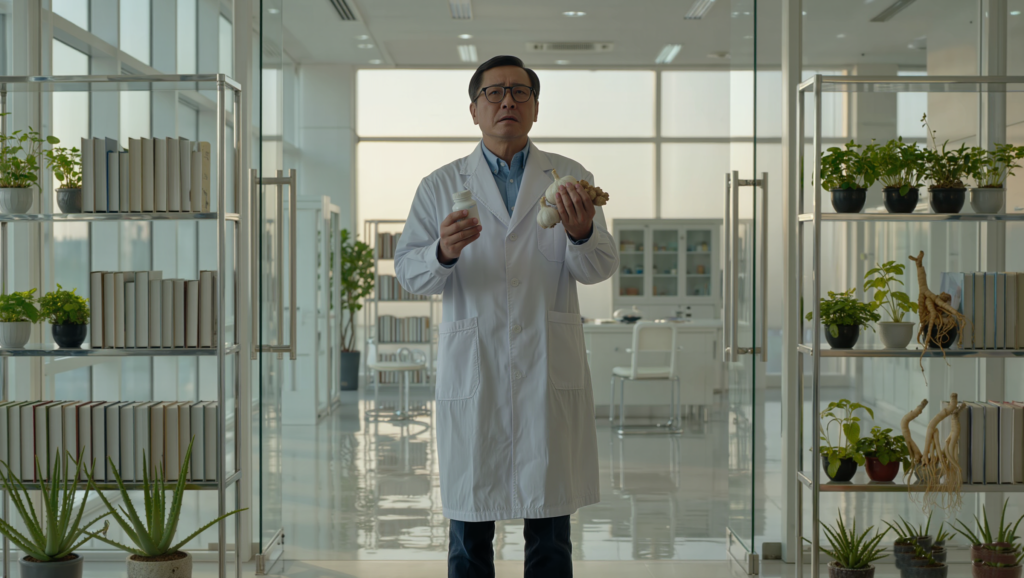Antibiotic resistance is one of the most alarming public health threats of our time. Overuse and misuse of pharmaceutical antibiotics have fueled the rise of “superbugs”—microbes that can shrug off our best medical treatments and turn once-minor infections deadly. But here’s the silver lining: Mother Nature has been crafting potent antibiotics for millions of years. Many natural remedies—herbs, plant compounds, and even some foods—pack impressive antimicrobial punch and are being rediscovered as researchers and integrative physicians look for safe, effective, and sustainable alternatives.
Ready to upgrade your wellness toolkit? Let’s deep-dive into three of the most scientifically validated, potent, and effective natural antibiotics: garlic, honey, and oregano oil. Plus, discover how to use them, what the science says, and crucial caveats for your health.
1. Garlic (Allium sativum): Nature’s Original Antibiotic
Why It Works
Garlic is far more than a kitchen staple or vampire repellent. Thanks to its high concentrations of allicin—a sulfur-containing compound released when garlic is crushed or chopped—garlic can rapidly destroy bacteria, yeasts, and some viruses.
- Broad-spectrum activity: Garlic’s allicin has been shown in laboratory and animal settings to kill dozens of strains of bacteria—including some that are highly drug-resistant, such as MRSA (methicillin-resistant Staphylococcus aureus).
- Fungi, too: Garlic doesn’t just target bacteria; it also has powerful antifungal action and can be helpful in managing Candida and other yeast overgrowths.
- Immune boost: Garlic also modulates immune function, ramping up your body’s own infection-fighting power.
Clinical Studies
- A double-blind, placebo-controlled study found that regular garlic supplementation reduced both the frequency and duration of common colds—viral infections—by up to 70%.
- In vitro studies show that garlic extracts can slow the growth of antibiotic-resistant bacteria, even when conventional drugs fail.
How to Use Garlic Safely
- Raw is best: Allicin is fragile and heat-sensitive. Raw, freshly crushed garlic delivers the most potent effect. Add to salad dressings, dips, or take a spoonful with honey.
- Supplements: Standardized garlic capsules are available, but check for genuine allicin content.
- Cautions: Garlic can thin blood and interact with medications like warfarin. Large raw doses may cause digestive upset.
2. Manuka Honey: The Sweet Antimicrobial Superfood
Why It Works
Not all honey is created equal. Manuka honey (made by bees pollinating the Manuka bush in New Zealand) contains a high concentration of methylglyoxal (MGO) along with hydrogen peroxide, making it one of the most powerful natural antibiotics known.
- Kills bacteria physically and chemically: Manuka honey draws water out of bacteria (dehydrating and killing them) and attacks their DNA and cell walls with hydrogen peroxide and MGO.
- Effective against resistant bugs: Manuka honey is clinically effective against MRSA, Pseudomonas, and other nasty hospital-acquired infections. It’s even used on wound dressings in hospitals.
- Soothes wounds and burns: Manuka honey promotes faster healing, reduces pain, and prevents scarring by keeping wounds moist and infection-free.
Clinical Studies
- Manuka honey has been shown to eradicate biofilms (protective layers bacteria build to dodge antibiotics) and reverse chronic wound infections when conventional antibiotics fail.
- Oral Manuka honey can help soothe sore throats and suppress bacterial growth in the mouth and upper airways.
How to Use Manuka Honey Safely
- Topical use: Apply directly to wounds, burns, or ulcers under a sterile bandage.
- Internal use: Add to tea for sore throats or take by the spoonful (avoid in children under 1 year due to botulism risk).
- Cautions: Real Manuka honey can be expensive, and low-quality or fake versions lack medicinal potency. Look for UMF-certified honey for guaranteed activity.
3. Oregano Oil: A Concentrated Plant Antibiotic
Why It Works
Oregano oil isn’t just a culinary delight—it’s pharmacological dynamite. The secret weapon is carvacrol, a phenol that stops bacteria, fungi, and even some viruses in their tracks.
- Extremely broad spectrum: Oregano oil can kill or stunt over 20 types of bacteria, including E. coli, Salmonella, and Pseudomonas, as well as various yeasts and molds.
- Destroys biofilms: Oregano oil can break down bacterial “hiding places” that shield microbes from antibiotics and immune cells.
- Potent against foodborne pathogens: Oregano oil has been shown to kill listeria, staph, and other foodborne bugs in both lab and food safety studies.
Clinical Studies
- Encapsulated oregano oil has led to a reduction in symptoms and clearance of certain gut parasites and infections, like SIBO (small intestine bacterial overgrowth) in small clinical trials.
- Topical application of diluted oregano oil can heal fungal nail infections and athlete’s foot more quickly than some drugstore antifungals.
How to Use Oregano Oil Safely
- Dilute, dilute, dilute: Oregano oil is incredibly strong. Always dilute in a carrier oil (like olive or coconut oil) for skin use.
- Short-term use: For internal or oral use, only take under the guidance of a healthcare professional, and for short periods.
- Cautions: Not recommended for pregnant women, children, or people with allergies to mint-family herbs.
Putting It All Together: How to Integrate Natural Antibiotics
While the evidence for natural antibiotics is exciting, it’s essential to use them responsibly:
- Prevention is key: Use these natural antibiotics as part of immune-supportive routines, not as your first line of defense for severe infections.
- Consult a professional: Always see a health provider for serious or worsening infections, and before mixing with prescription antibiotics.
- Quality counts: Choose reputable brands, properly standardized extracts, and organic sources when possible.
Final Word: Nature’s Arsenal in the Fight Against Superbugs
As antibiotic resistance accelerates, integrating proven natural antibiotics like garlic, Manuka honey, and oregano oil could become a key part of a resilient, holistic health strategy. They may not replace life-saving pharmaceuticals for life-threatening infections, but these ancient remedies deliver science-backed antimicrobial power that’s hard to ignore—and easy to fit into your daily life.
Did you find this article meaningful and useful? Then please help support us by following either one or all of aur pages on social media,. That way you also get to see our videos and posts on other topics that might also be meaningful to you. Youtube, Instagram, Facebook, Pinterest, Twitter (X)








